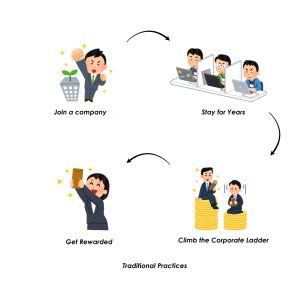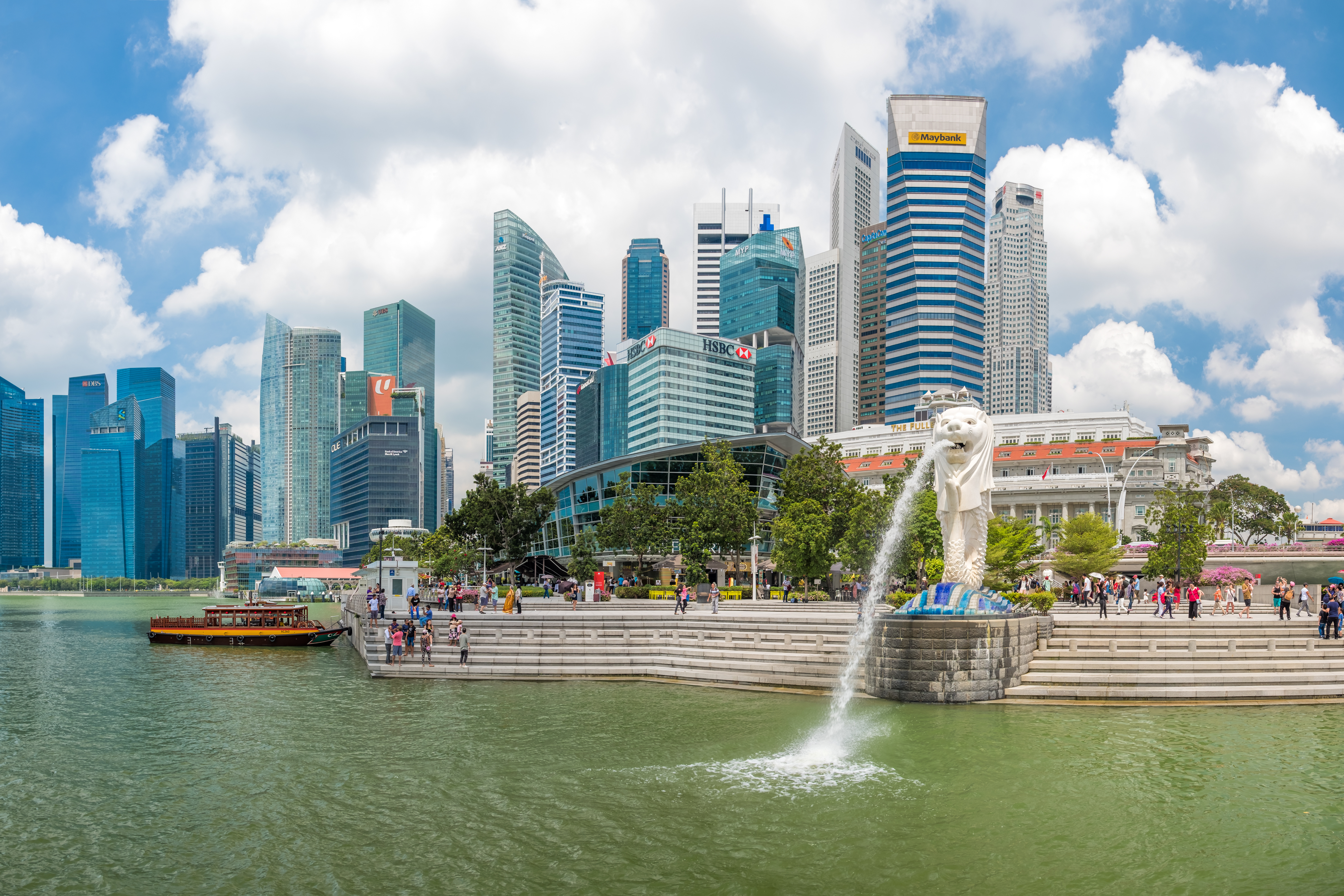Empower Singapore’s Healthcare & Government: Unlock Gen Z Talent Strategies
Leaders should prioritise strategies aligning with this generation’s values to attract and retain Gen Z talent in Singapore’s healthcare and government sectors. Key approaches include offering flexible work arrangements, fostering a culture of trust and open communication, and demonstrating a strong commitment to purpose, values, and social responsibility. Additionally, investing in career development and continuous learning opportunities is crucial, as 71% of Singaporean employees consider training and development important at all career stages. By implementing these strategies, employers can transform perceived challenges into opportunities to build a dynamic and resilient workforce for Singapore’s future.
Society, employers, and older generations view Generation Z workers through various lenses. While this demographic possesses distinct strengths and values, they also face certain perceptions and stereotypes.
Born between 1997 and 2012, Gen Z comprises 30% of Singapore’s resident population. Described as digital natives alongside millennials (1981-1996) who grew up with technological advancements, this has conditioned them to expect immediacy to access information quickly and easily from anywhere.
Attracting Gen Z is increasingly crucial for employers across all industries, especially in Singapore’s healthcare and government sectors, defining a key trend in the future of work. Baby Boomers and Gen Z, are increasingly retiring. The ageing population(65 and above) has risen rapidly compared to the last decade from 12.4% (2014) to 19.9% (2024).
OAI’s Talent Acquisition Insights: Work Culture Then Vs. Now
A successful career looked slightly different from what it is now. The goal was simple: join a company, stay for years as proof of loyalty, climb the corporate ladder, and get rewarded; this is what job security meant. Some worked late into the night and hoped to be rewarded for their effort and time, but this cost them their overall well-being and family time. Though most feel stuck, they choose to keep going.

Gen Z workplace expectations counter traditional practices; they want work-life balance for greater flexibility, different remunerations packages, the ability to negotiate, inclusivity, companies with values they relate to and well-being support. Because of these expectations, most see this as challenging authority and procedures set in place, if these expectations are not addressed, hiring and retaining these talents will prove challenging.
Tailoring Gen Z Talent Acquisition Strategies for Singapore’s Government and Healthcare Sector
1. How Critical is Work Flexibility for Gen Z?
Since Flexible Work Arrangement (FWA) took effect on 1 December 2024, Gen Zers said they’d leave jobs requiring longer hours at the office; 68% said they would not work for businesses that do not provide flexible work hours and locations (61%).
The recent COVID-19 pandemic has helped the younger generation realise that modern work practice is possible. They also yearn for fluidity and independent management styles that allow them to complete their tasks without being micromanaged.
We urge employers to consider offering hybrid work arrangements or flexible work hours to attract or retain the younger generations to join their organisations. For the Singapore government and healthcare sectors, where shift work is almost mandatory, we recommend offering the option of compressed work weeks to entice the younger demographics who offer room for flexibility and ample rest.
KK’s Women’s and Children’s Hospital staff survey results stated that 66% agreed their motivation increased; more than two-thirds of those surveyed indicated improved job satisfaction due to compressed work weeks.
Navigating these operational shifts can be complex. Through our experience placing individuals in high-compliance roles in the healthcare sector and deploying agile talents across dynamic government sectors, we understand the intricacies of Gen Z recruitment and place utmost importance on placing the right individuals who contribute to organisational success.
Our RPO services are designed for fast-paced and in-demand industries to alleviate hiring stress so you can focus on growing your organisation without the hassle of sifting through a saturated market. Beyond recruitment, OAI’s HR talent acquisition services offer valuable resources for developing and implementing robust internal support systems, contributing to a healthier and more sustainable work environment.
Addressing Employers’ Concerns About Flexible Work Arrangements (FWA)
Implementing FWAs in Singapore, particularly within the government and healthcare sectors, may seem strategic for attracting and retaining Gen Z talent. In 2024, 72% of Singaporean employers have offered hybrid work arrangements two to four days a week.
Singapore National Employers Federation (SNEF) found that implementing FWA increased work productivity by 35%, talent retention by 45%, and reduced office space costs by 40%. However, some employers remain reserved about the idea due to several concerns, such as:
- Managerial Challenges: FWAs may seem to burden managers with more communication time, a lack of supervision (especially for job performances not easily measured), and scheduling employees’ working time.
- Additional Cost: Some roles require redesigning to accommodate staggered work hours, which would incur retraining or rehiring costs. Implementing new paid systems may also be an unnecessary expenditure.
- Disruption in Team Dynamics and Collaboration: Some may regard remote working as negatively affecting collaborative efforts and limiting communication with less in-office presence.
- Manpower Shortage Concerns: In healthcare sectors, the lack of manpower is growing as the demand for medical practitioners and healthcare administrators has increased.
Proactively addressing these concerns is key to successful FWA adoption.
Improve Your Gen Z Hiring Strategies: Redesign Employee Engagement
While government and healthcare employers may be concerned that flexible work arrangements could do more harm than good, here are some of our ideas to best support remote work to help your employees achieve what you set out for them:
- Establish a Culture of Trust and Flexibility: Goals that promote individual growth and getting employees involved empower them to drive success when they feel their opinions are valued. Conduct quarterly performance evaluations or check-ins to track progress and meet targets. Use this opportunity to suggest areas of improvement and to offer constructive feedback.
- Leverage Project Management Tools: Monday.com, Trello, or Notion are productivity tools for task tracking that keep everyone aligned. Emphasise results and achievements instead of micromanaging your team.
- Establish Communication Guidelines: Define when employees should be available to establish consistent communication. Schedule focused team meetings to keep everyone aligned and accountable; prioritise respectful boundaries, especially outside work hours.
- Develop Clear Policies on Data Access: To effectively combat the security risks posed by remote employees accessing company data from personal networks (e.g., breaches, unauthorised access), employers should prioritise clear policies for data access, password management, storage, and designated device usage. Provide comprehensive cybersecurity training to educate employees on how to protect sensitive information.
- Review Roles and Job Redesign Initiatives: Healthcare organisations should consider reviewing all roles and tasks to support work flexibility. To do this effectively, consider eliminating or automating tasks that disrupt productivity.
2. Why does Gen Z Connect Purpose, Values, and Social Responsibility to Job Satisfaction?
On average, the healthcare sector’s stipulated working hours are between 38-42 hours, but may be longer due to shift work. Given that individuals spend a significant portion of their day at work, it is natural for them to seek purpose and meaning in their roles.
A whopping 89% of Singaporean Gen Zers claim jobs with purpose attributes to satisfaction, and if it aligns with their beliefs; 52% rejected potential employers due to a lack of acceptance of diversity (not just race and gender), inclusivity and support of mental well-being.
Regarding social responsibility, Gen Zers are increasingly concerned about sustainability and the environment, especially climate change. About 67% desire to work for companies that proactively thrive in this area.
Every organisation has core values that structure its culture and vision. Don’t just talk about them; seize opportunities by demonstrating these values daily through tasks, communication, or decision-making. Connect your employees’ daily tasks to the organisation’s vision to help them see how their contributions fit into the bigger picture of purposeful work.
Companies representing the spectrum of differences in employer branding and positioning are much more likely to diversify their talent pipelines. We advise employers to prioritise building an inclusive leadership team and provide training on the benefits of a diverse workforce and overcoming bias, whether it’s race, religion, gender, or age.
Corporate social responsibility (CSR) strategies that include diverse labour practices are also recommended, where organisations carry out activities to give back to the communities around them.
3. How Growth, Career Development, and Learning Create an Engaged and Productive Gen Z Workforce:
Today, Gen Z is focused on acquiring new skills and advancing their careers; they are no longer keen on adapting the traditional linear progression like it was for the previous generations (staying in the same role due to loyalty).
Notably, 71% of Singaporean employees agreed that training and development are important in all career stages, and if an organisation doesn’t provide such opportunities, they leave, some even job hop.
This move may be a double-edged sword; it may seem like a strategic plan for career growth, but to employers, it can also be perceived as an inability to commit long-term and increase turnover costs like rehiring and retraining.
Attracting and retaining Gen Z employees necessitates employers making genuine investments in development, such as clarifying career paths, conducting cross-training to encourage the exchange of knowledge and collaboration, and providing access to education and upskilling programmes.
We understand that some companies may experience budget constraints in this area; however, you can still develop creative ways to offer upskilling and professional development opportunities.
- Position Managers as Mentors: Managers and team leaders are crucial in Gen Z’s development in any organisation. These individuals are to guide them in leveraging their skills and talents to contribute to the team and company goals, and provide constructive feedback for further improvement.
- Foster Continuous Learning: Encourage employees to learn from each other. Managers can connect employees with internal subject-matter experts, which facilitates cross-learning. It strengthens their internal network and fosters collaboration and communication.
- Encourage Usage of Free External Resources: Many free learning platforms offer certification, such as Coursera, LinkedIn Learning, Udemy, and more. To promote these learning platforms effectively, leaders and managers should lead by example by utilising or testing these platforms to support their pitch and highlight the benefits they’ve gained. You can also reward employees who have completed new courses and applied newly learned skills.
Embracing these shifts doesn’t mean compromising traditional values; rather, it means transforming operational models to secure talents essential for future success. By fostering cultures built on trust, offering work flexibility, championing inclusivity, and investing in continuous learning, employers will transform perceived challenges into opportunities. This is beyond just filling vacancies but establishing a dynamic, innovative, and resilient workforce that will shape Singapore’s future for decades.
Ready to transform your Gen Z talent strategy in Singapore’s Healthcare or Government sector? Contact our specialist team today at: nonaviationteam@oaigroup.com




